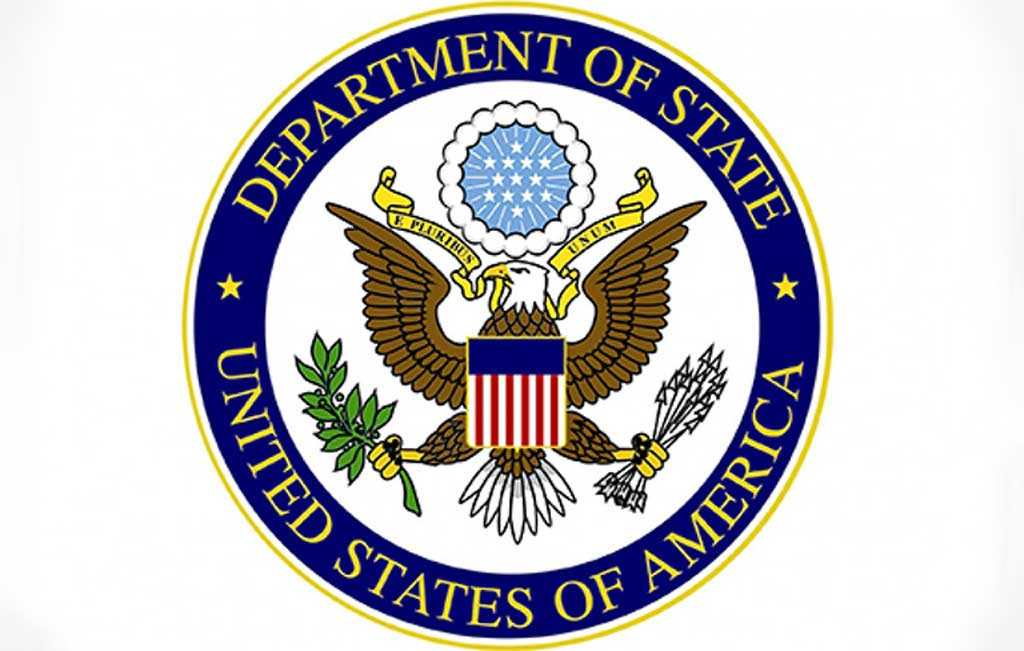Promoting human rights and fundamental freedoms is at the heart of the US administration’s foreign policy, says the State Department official

US State Department's spokesperson Matthew Miller has said he is unfamiliar with the letter six congressmen sent to US President Joe Biden on Bangladesh.
“I'm not familiar with the letter. We generally don't comment on letters that we get from members of Congress. We respond to them back usually confidentially, but I'll say, of course, any concerns that we have, we will continue to make known privately as well as publicly,” he said in the daily briefing in Washington on Wednesday.
Miller was replying to a question whether the state department would fact-check what is really going on in Bangladesh, against the backdrop of six congressmen's letter raising concerns about the human rights situation in Bangladesh.
However, different communities protested the move of the six congressmen - Scott Perry, Barry Moore, Warren Davidson, Bob Good, Tim Burchett, and Keith Self.
They also found inconsistencies in the information provided in the joint letter.
Archbishop Emeritus of Dhaka Patrick D'Rozario had trashed the portrayal that the “Christian community has been persecuted” in Bangladesh under the current government as stated in a letter, saying such assertions are not correct, and insisted that the government stood beside their community against religious bigots.
Dated May 25, the letter forwarded before the US president with an appeal seeking Biden's intervention over the matter, stated that “Sheikh Hasina's government also has persecuted Bangladesh's minority Christian population – burning and looting places of worship, jailing pastors, and breaking up families when religious conversion occurs.”
In response to a question over the veracity of the claim, Patrick contended that “from my experience, I can say this statement belies reality ... the real situation on ground is completely different from what has been stated.
“Under this government, Christians received support, it is safe to contend that the government has stood beside our community,” added Patrick who, in 2016, became the first Bangladeshi to be formally inducted into the Roman Catholic Church's College of Cardinals, a 120-member elite body which advises and elects popes.
“Though some incidents occurred in the past, this government took stances in defence of our community,” Patrick had said.
In another letter, recently six members of Congress - William R Keating, James P. McGovern, Barbara Lee, Jim Costa, Dina Titus, and Jamie Raskin - called upon US Secretary of State Antony Blinken calling to ensure free and fair parliamentary elections in Bangladesh.
Replying to a question that whether BNP's firm stance on caretaker government could be interpreted as an indication of potential obstruction of election in accordance with the US visa policy for Bangladesh, Mathew Miller said: “I don't want to speak to that specifically other than to say that the United States is committed to the promotion of democracy and fair elections all over the world.
“That of course includes Bangladesh. Democracy is the most enduring means to advance peace, prosperity, and security. Promoting human rights and fundamental freedoms is at the heart of our – the administration's foreign policy, and we have made that clear as it pertains to Bangladesh,” he said.
The spokesperson made the comment when a journalist asked: "About human rights, already two letters were sent by the congressmen to the State Department, also to the White House, and of course about human rights; that is a fantastic job that they are doing. Is there any way that the State Department does the fact-checking? What's really going on in Bangladesh in that matter, what is on that – their letter?"
The US has recently announced a new visa policy for Bangladesh to what Secretary of State Blinken said to ensure free and fair democratic elections in the country.












